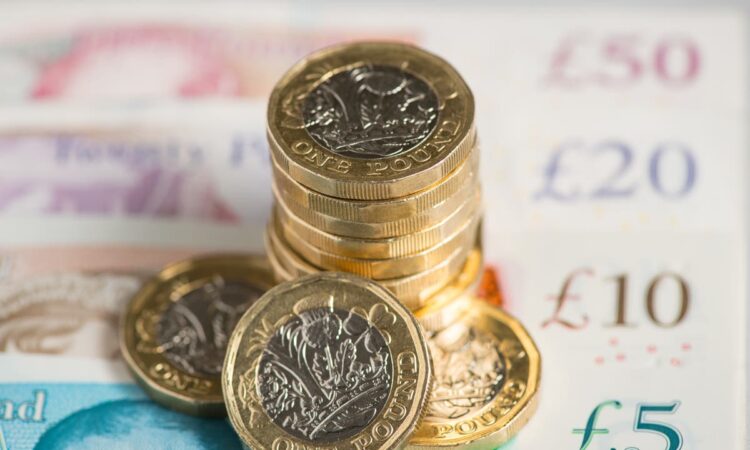
This month many in the UK will still be looking anxiously at their energy bills and thinking twice about switching the heating on.
Ofgem has announced that its cap on the amount suppliers can charge for energy for average dual fuel, direct debit customers will fall by 23 per cent for the three months from 1 April to £3,280, from £4,279 for the January to March quarter. But campaigners warn that imminent changes to the government support measures, introduced last year to tackle soaring domestic energy costs, mean many could actually end up paying more.
Chancellor Jeremy Hunt has announced that the energy price guarantee – introduced by Liz Truss last September to ensure households paid no more than £2,500 for their electricity and gas, with the government subsidising the remainder permitted by the cap – would be increased to £3,000 from next month.
That is a considerably less generous offering and coincides with a £400 discount introduced by Rishi Sunak a year ago being allowed to elapse. That could leave households £900 out of pocket in total.
The UK rate of inflation meanwhile currently stands at 10.1 per cent, keeping the cost of goods on supermarket shelves high, while the Bank of England’s Monetary Policy Committee has raised interest rates to 4 per cent.
But despite that gloomy context, more state support will be paid out to help with the cost of living crisis over the course of the month.
Here is a guide to what you can expect and who is eligible.
State benefits and pensions
These payments will go out directly on their usual dates this March, with no public holidays forthcoming to complicate the process:
- Universal credit
- State pension
- Pension credit
- Disability living allowance
- Personal independence payment
- Attendance allowance
- Carer’s allowance
- Employment support allowance
- Income support
- Jobseeker’s allowance
For more information on how and when state benefits are paid, please visit the government’s website.
In addition, a number of cost-of-living support payments announced by the state last year are still active, at least for the moment.
Energy discount payment
One of the headline gestures Mr Sunak announced during his tenure as chancellor last spring was that every household would receive a £400 energy bill discount to soften the blow of rising bills resulting from the European energy crisis.
This replaced a planned £200 universal loan that he announced in February 2022, doubling that figure and turning it into a grant that doesn’t need to be paid back.
The first £66 instalment was dispatched in October, followed by another in November and £67 in December, January and February.
This month sees the final £67 instalment on its way before, as explained above, it is allowed to expire with no immediate promise of renewal in sight.
Those who pay their bills by direct debit receive the discount automatically – either as a deduction to their monthly payments or as a refund to bank accounts.
Those who pay on receipt of an invoice see the discount applied as credit to their energy account every month.
Smart prepayment meter customers also receive the discount automatically monthly while prepay customers are sent discount vouchers by text, email or post that they will need to redeem manually.
Cold weather payment scheme
This government scheme reopened on 1 November and runs until 31 March, granting £25 to people on low incomes for every seven-day period in which sub-zero temperatures occur.
The cold snaps we experienced in the second week of December and the middle of January did not quite last long enough to trigger it but who knows how long the spell widely predicted for the middle of this month might last?
Should a big freeze arrive and a cold weather payment be signed off, the money would be paid to anyone registered with Department for Work and Pensions (DWP) to receive a qualifying benefits payment, such as: pension credit, income support, income-based jobseeker’s allowance, Income-related employment and support allowance or universal credit.
Warm home discount scheme
The government’s winter heating support scheme was likewise revived on 14 November and also runs until 31 March, granting £150 to qualifying recipients to see them through the coldest season, the money taken off their energy bills directly by their supplier.
The money will be paid to help with high energy costs to anyone receiving the following benefits: pension credit, income-related employment and support allowance, income-based jobseeker’s allowance, income support, universal credit, housing benefit or child tax credits and working tax credits.
It’s also worth bearing in mind that the DWP has announced that millions of households on low incomes will receive further cost of living support worth up to £1,350 from the spring.
The new £900 cash support for over eight million eligible means-tested benefits claimants, including people on universal credit, pension credit and tax credits, starts in the spring and will go directly to bank accounts in three payments, the DWP said.
There will also be a separate £150 payment for more than six million people with disabilities and £300 for over eight million pensioners on top of their winter fuel payments.
Here are the additional payment windows announced:
- £301 – First cost of living payment – during spring 2023
- £150 – Disability payment – during summer 2023
- £300 – Second cost of living payment – during autumn 2023
- £300 – Pensioner payment – during winter 2023/4
- £299 – Third cost of living payment – during spring 2024






